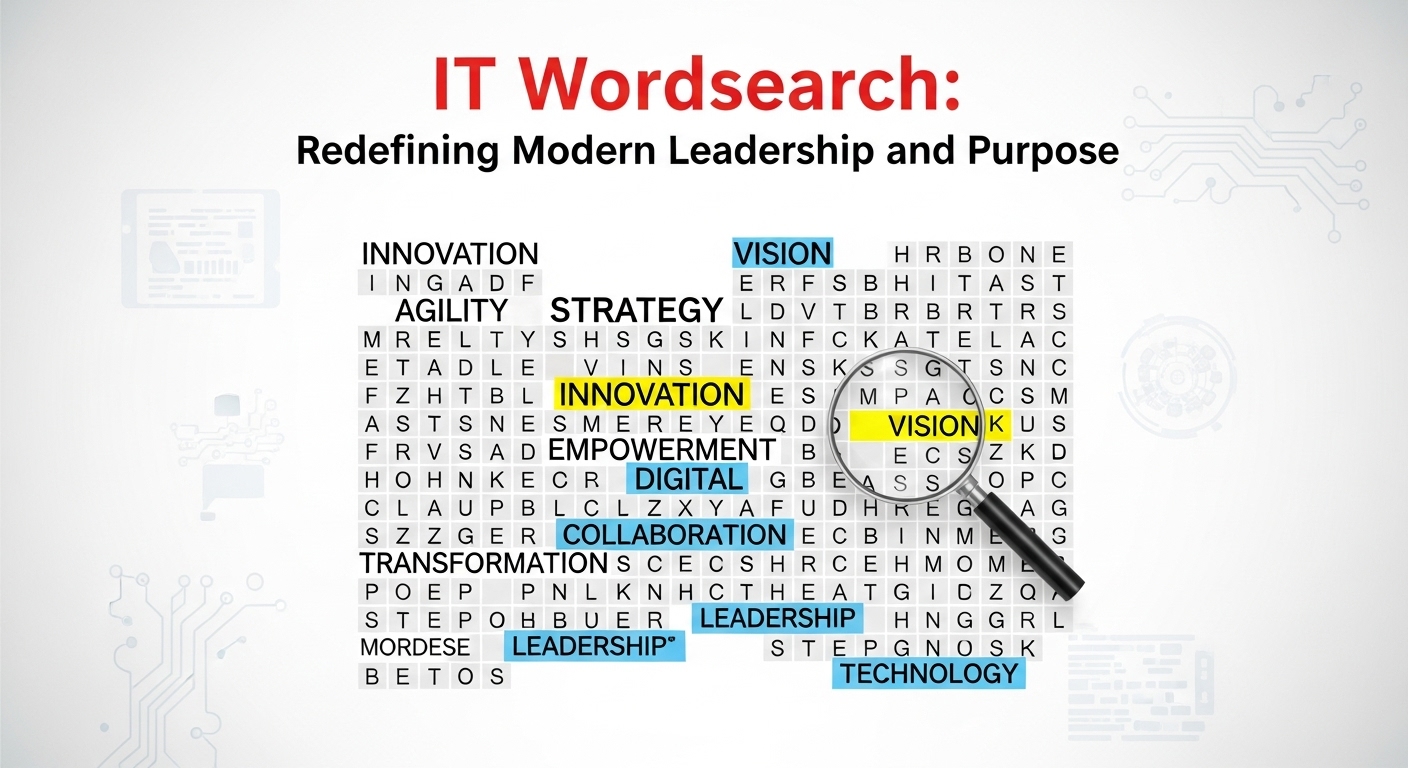BUSINESS
Data Breach Prevention Strategies Every Business Should Implement

The amount of data compromises in the United States alone, for the year 2023, was 3,205 cases. This shows how common and widespread this threat is to businesses all across our nation. In today’s landscape, where everything relies on digital methods like storing data or communicating through computers and internet systems, these incidents not only risk sensitive information but also harm companies’ financial security and their reputation.
Therefore, it is clear that having strong methods in place to prevent data breaches isn’t just a safety measure, but also a critical imperative for keeping valuable information safe and maintaining trust from customers and stakeholders.

Perform Regular User Access Reviews
Regular audits of user access rights are crucial for preventing data breaches effectively. These audits involve assessing and modifying the permissions granted to individuals across computer systems and networks.
With a regular user access review, businesses can confirm that their workers have access only to necessary information for their work duties. Additionally, using a platform that automates the audit process allows reviewers to make well-informed decisions about confirming or revoking access while maintaining a clear record of actions taken. This method helps in reducing unauthorized access risks and lessening the possibility of insider threats jeopardizing important data.
Implement Strong Password Policies
One vital element of safeguarding data is establishing strong password guidelines. Passwords act as the initial barrier against unauthorized entry. Companies ought to mandate policies that demand staff to utilize intricate passwords incorporating letters, numbers, and special symbols.
Moreover, periodic password updates and the adoption of multi-factor authentication (MFA) bolster security measures, markedly increasing the difficulty for malicious entities to breach sensitive data.
Provide Ongoing Security Awareness Training
Employees are key in keeping data safe. Regular training sessions on security help employees spot dangers like phishing scams and social engineering tricks. Teaching employees how to manage sensitive information and notice shady activities helps create a strong security culture within the company.
Encrypt Data Both in Transit and at Rest
Encryption is a method of protecting sensitive data by transforming it into a secure form that can only be accessed or decoded with an encryption key. For full coverage, businesses need to enforce encryption protocols on information while it moves between systems (in transit) and when saved on servers or devices (at rest). This action ensures that if someone intercepts or wrongfully accesses the data, they cannot use its content because the encryption secures both confidentiality and usability.
Implement Robust Endpoint Security Measures
Devices like laptops, smartphones, and others are vulnerable to cyberattacks. Strengthen their security by installing antivirus software, firewalls, and endpoint detection and response (EDR) solutions. These measures protect devices from malware and other harmful activities.
Regularly updating and patching devices enhances security by fixing known vulnerabilities and defending against new threats.
Utilize Secure Backup and Recovery Solutions
If there’s a data breach or system breakdown, having dependable backup and recovery options is crucial to reduce downtime and prevent data loss. Businesses should routinely save important data in safe spots like cloud services or offline storage devices.
Regularly testing backup systems is also vital to confirm they work properly and can be easily accessed during emergencies. A strong backup and recovery strategy gives businesses the ability to bounce back quickly from data problems.
Establish and Enforce Data Handling Policies
Concrete and executable data management rules are essential for keeping data safe. These rules must specify how to approach, store, and distribute sensitive data inside the company.
By categorizing data according to its level of sensitivity and setting who can access it, companies can cut down on the likelihood of data leaks stemming from accidental or unauthorized access. Constant oversight and implementation of these rules guarantee continuous compliance with security norms.
Conduct Regular Security Audits and Vulnerability Assessments
Businesses must consistently perform security checks and risk scans to anticipate and prevent potential threats. These scans involve scrutinizing current security protocols, pinpointing weaknesses, and implementing measures to reduce risks.
By using specialized tools and techniques for identifying security flaws, companies can actively mend security shortcomings before they become targets for cyberattacks. Frequent security reviews give companies a detailed view of their security stance and assist in perpetually enhancing their strategies to prevent data breaches.

Final Thoughts
Businesses must take proactive steps to prevent data breaches by integrating strong security measures across all operations. Strategies like regular user access reviews, strict password policies, continuous security training, data encryption, endpoint protection, secure backup solutions, clear data handling rules, and routine security audits can greatly improve the ability to prevent and minimize the impact of breaches.
Safeguarding sensitive information isn’t merely about following rules; it’s a vital investment in preserving trust and reputation, as well as ensuring sustained success in today’s interconnected digital environment.
BUSINESS
Common Legal Issues in Residential Real Estate and How to Address Them

Navigating residential real estate transactions can involve various legal challenges that homeowners and buyers should be aware of. Common issues include unclear property titles, zoning disputes, boundary disagreements, and contract misunderstandings. Addressing these matters proactively can prevent costly delays and protect all parties involved. Understanding the basics of real estate law helps individuals recognize potential pitfalls before they escalate into serious problems.
Engaging with professionals knowledgeable in real estate law can guide you in drafting contracts, resolving disputes, and ensuring compliance with local regulations. By seeking informed advice early, homeowners and buyers can reduce risk, streamline transactions, and safeguard their investments. Awareness and preparation are key to handling legal complexities effectively while maintaining confidence throughout the buying or selling process.
Title and Deed Fraud
Title fraud is a significant issue in which criminals transfer property ownership illegally by forging signatures or using other fraudulent means. This not only compromises ownership but may also leave you liable for debts or liens tied to your property. To protect your home, periodically monitor the status of your property title and consider using title lock services that can notify you of any unauthorized changes to your title. Title insurance, which most lenders require, also provides a crucial layer of protection for homeowners.
Undisclosed Property Defects
When selling property, sellers are legally obligated to disclose any known issues; however, some defects may remain hidden until after the sale has been completed. Commonly undisclosed issues include water damage, faulty wiring, and past pest infestations, which can result in significant costs for buyers. Buyers must conduct a thorough home inspection and scrutinize disclosure forms, maintaining clear communication with inspectors to document potential issues. If defects arise after the sale, buyers may have legal avenues for compensation or to rescind the contract.
Breach of Contract
Residential real estate deals are governed by contracts detailing every aspect of the transaction, from price and contingencies to required repairs and closing dates. Breaches can occur if any party fails to meet their obligations, for instance, by not repairing a leaky roof as promised or missing crucial deadlines. Preventing breaches begins with clear and precise language in contracts and diligent communication among all parties. Understanding residential real estate law is essential, as it provides the framework for enforcing agreements and resolving disputes. In the event of a potential contract violation, consulting with a real estate attorney can help explore remedies such as mediation, renegotiation, or pursuing damages through legal channels.
Financing and Mortgage Issues
Financing problems or misconceptions about mortgages, such as loan denials after an offer, misunderstandings about interest rates, and mistakes in documentation, can make a real estate transaction difficult. Before closing, buyers should maintain good credit, avoid making significant financial changes, and thoroughly understand their loan terms and conditions. To mitigate risks and prevent unforeseen issues, it is crucial to maintain open lines of communication with lenders, including documenting all conversations.
Zoning and Land Use Restrictions
Zoning laws regulate the use of properties, including structures, businesses, and fences. Ignoring local ordinances can lead to legal issues or the removal of modifications. Check the regulations on your city or county website and consult with planning officials before making changes to ensure compliance and avoid costly errors.
Homeowners Association (HOA) Disputes
Neighborhoods governed by HOAs come with additional rules and responsibilities. Disputes over landscaping, parking, noise, or architectural changes are common and can lead to fines or legal conflicts if not handled carefully. Before committing to a property in a managed community, scrutinize the HOA’s covenants, conditions, and restrictions (CC&Rs), and attend community meetings if possible. If you find yourself facing a dispute, approach your HOA board promptly and maintain a documented record of correspondence to facilitate quick and amicable resolutions.
Boundary and Survey Disputes
Accurate boundary identification is crucial for maintaining peaceful neighbor relationships and facilitating future transactions. Disputes may arise from misinterpreted property lines, encroachments, or unclear lot descriptions. Buyers should always order a fresh professional survey before closing and review all records for discrepancies. Resolving boundary disagreements amicably is ideal, but legal recourse may be necessary if talks fail. County assessor offices and historical deed records often provide valuable documentation during such disputes.
Conclusion
By proactively identifying and addressing these common legal issues in residential real estate, you reduce the likelihood of disputes and financial setbacks. Relying on professionals, including attorneys, inspectors, and local government officials, is crucial to navigating the process safely. Make informed decisions, keep diligent records, and stay current with your obligations to ensure a successful and secure real estate experience.
BUSINESS
The Power of Peace of Mind: Why Insurance Is an Investment, Not an Expense

Understanding Insurance as an Investment
Understanding insurance as an investment means recognizing that certain policies serve a dual purpose: offering financial protection and building long-term value. Unlike savings accounts, these policies create a safety net and accumulate cash value, like life insurance growing through interest or dividends, providing coverage and wealth buildup. Viewing insurance this way helps individuals choose policies aligned with their financial goals and risk tolerance. Even standard policies, such as auto insurance, contribute to financial planning by covering damages and liabilities, preventing major expenses that could affect budgets or investments. Recognizing insurance’s dual role as protection and potential investment allows for better financial stability and peace of mind.
Major Types of Insurance and Their Benefits
Each insurance type serves a specific purpose. Health insurance covers unexpected illnesses, providing lifesaving care when needed. Property and homeowner’s insurance help rebuild after fires or storms. Auto coverage protects your vehicle and passengers and fulfills legal requirements, shielding parties from losses. Policies can be customized with add-ons like identity theft or bundling car, house, or business liabilities to suit your needs. Home insurance is essential for homeowners, protecting against weather damage, theft, and liability, so you can rest easy. The right coverage considers your assets, lifestyle, and goals, building a safety net. When choosing insurance, look beyond premiums to the long-term impact of coverage.
The Economic Impact of Insurance on Communities
Insurance isn’t just about individual peace of mind; it fortifies entire communities. When people and businesses insure their property, health, and liabilities, they’re more likely to innovate, expand, and support local economies without the threat of catastrophic loss holding them back. In times of crisis, insurance payouts for rebuilding and recovery help stabilize neighborhoods and reduce the strain on public resources.
Economists have observed for a long time that insurance significantly supports entrepreneurship and investment in new ventures. Industries with good coverage tend to withstand economic downturns better and recover more quickly from unexpected shocks. Without the reassurance provided by insurance, growth and innovation would slow down considerably, and the potential risks might prevent significant advancements.
Integrating Insurance into Long-Term Financial Planning
Insurance should be a pillar of any sound financial plan. Start by assessing which risks could cause serious setbacks and match coverage types to those needs. For example, young families often prioritize life insurance for security, while property owners focus on home protection. Consistently reviewing policies ensures your protection evolves along with life changes, from family milestones to new business ventures.
Smart policyholders treat premiums as contributions toward future security—much like retirement savings or investments in education. This proactive mindset isn’t about compliance or mere obligation; it’s about wisely positioning yourself and your loved ones to weather whatever comes, while supporting the stability and prosperity of your broader community.
Conclusion
In today’s unpredictable world, the value of insurance extends far beyond a monthly bill. It is a critical investment, weaving together individual peace of mind with the collective strength of families, homeowners, and business owners. By embracing insurance as a strategic tool rather than an expense, you empower yourself to pursue your dreams and build a future fortified against life’s uncertainties.
Building your protection strategy now lays the groundwork for confidence, stability, and security—qualities that enrich not only your own life but also the broader community and economy. Make insurance a purposeful component of your financial plan and experience the freedom that comes from true peace of mind.
BUSINESS
IT Wordsearch: Redefining Modern Leadership and Purpose

In today’s rapidly evolving world, leadership is no longer defined solely by financial success or corporate expansion. The most influential leaders are those who integrate business excellence with social responsibility, building organizations that thrive while uplifting communities. One such emerging perspective in this landscape is IT wordsearch—a concept that symbolizes the search for meaning, alignment, and innovation in modern leadership.
This article explores how IT wordsearch represents more than a puzzle-like curiosity. It reflects a deeper leadership journey—one where purpose and performance align, where success is measured not only in profits but also in people, culture, and long-term impact.
What is IT Wordsearch?
At first glance, it wordsearch may sound like a simple activity: finding hidden words within a grid. Yet when applied to leadership and business, the phrase takes on a symbolic meaning. It suggests a process of discovery, alignment, and focus. Just as players search for hidden words, leaders must search for solutions, values, and strategies hidden within the complexity of today’s global challenges.
The idea resonates with professionals who believe that economic growth and positive social change are not mutually exclusive but deeply interconnected. Much like solving a wordsearch, success lies in recognizing patterns, connecting dots, and uncovering possibilities others may overlook.
A Leadership Philosophy Rooted in Discovery
At the heart of the it wordsearch philosophy is the belief that leadership is a continuous search for purpose. This approach emphasizes three core values:
- Empathy in leadership: Understanding the human side of business, from employees to customers.
- Sustainability: Ensuring long-term growth by balancing profitability with environmental and social responsibility.
- Collaboration: Building partnerships that amplify both business outcomes and community well-being.
This framework reflects a growing awareness that modern organizations do not exist in isolation. They are part of larger ecosystems where every decision has ripple effects. Leaders who embrace the it wordsearch mindset don’t just chase immediate wins—they uncover deeper value that sustains both business and society.
Bridging Business Growth with Social Impact
What makes the it wordsearch approach so powerful is its ability to link corporate success with community impact. Much like finding words hidden within a grid, leaders must look beyond the obvious to discover opportunities for shared growth.
Examples of this approach include:
- Workplace Culture: Designing inclusive, supportive environments that attract and retain diverse talent.
- Community Investment: Reinvesting resources into education, local initiatives, and social programs before they become urgent needs.
- Innovation for Good: Using technology to solve pressing challenges, from environmental sustainability to equitable access to services.
When these values are embedded into strategy, businesses create a virtuous cycle: strong companies nurture stronger communities, which in turn sustain future growth.
Influence in the Digital Age
The digital landscape has amplified the importance of acting with foresight. Just as a wordsearch reveals hidden connections, the digital world reveals opportunities for influence and innovation. Leaders today use platforms not only for visibility but also to inspire movements and conversations around responsible practices.
With it wordsearch as a guiding principle, leaders leverage digital tools to:
- Reach broad audiences with authentic messages.
- Engage younger generations who value transparency and inclusion.
- Inspire peers to adopt purpose-driven strategies.
In this sense, digital influence is no longer about self-promotion—it is about amplifying messages that shape industries and communities alike.
A Model for the Next Generation
The rise of it wordsearch as a metaphor for leadership aligns closely with the values of Millennials and Gen Z. Younger professionals increasingly seek role models who:
- Live authentically, aligning values with action.
- Promote diversity and equity, not as an afterthought but as a foundation.
- Think globally, addressing interconnected challenges such as climate change, inequality, and digital ethics.
These expectations highlight why it wordsearch resonates—it symbolizes the search for alignment in an often disjointed world. By embodying these principles, leaders position themselves not just as executives but as mentors and trailblazers.
Challenges in the Search
Like solving a difficult puzzle, applying the it wordsearch philosophy is not without challenges. Leaders face:
- Balancing short-term pressures with long-term commitments to purpose.
- Convincing traditional stakeholders of the measurable value of social responsibility.
- Navigating uncertainty in rapidly changing markets and technologies.
However, these challenges are also opportunities. Much like hidden words, solutions often lie just beneath the surface. Leaders who embrace curiosity and adaptability can turn obstacles into breakthroughs.
Why the Wordsearch Metaphor Matters
The metaphor of it wordsearch matters because it reflects the complexity of modern leadership. Success isn’t about finding a single answer; it’s about uncovering many interconnected solutions. A leader who can anticipate challenges, spot hidden opportunities, and align strategy with purpose is far better equipped to guide organizations through uncertainty.
This proactive mindset is essential in a world where reactive leadership often falls short. Waiting until challenges dominate headlines is too late. By searching for solutions early—before they are visible to all—leaders create lasting resilience.
Looking Ahead
As leadership continues to evolve, it wordsearch represents more than a clever metaphor. It is a call to action: to search for meaning, embrace complexity, and discover opportunities before they become urgent.
In a world where consumers, employees, and investors increasingly demand accountability, the leaders who succeed will be those who treat every challenge like a wordsearch puzzle—hidden with possibilities waiting to be uncovered.
The future belongs to leaders who see beyond profits, who connect performance with purpose, and who embrace the ongoing search for what truly matters. In the end, the most powerful leaders are those who uncover meaning not after the fact, but during the process—just as one finds words hidden in a puzzle grid.
-

 HEALTH2 years ago
HEALTH2 years agoIntegrating Semaglutide into Your Weight Loss Plan: A Practical Guide
-

 HOME IMPROVEMENT2 years ago
HOME IMPROVEMENT2 years agoHow to Choose the Perfect Neutral Area Rug for Every Room
-

 FASHION2 years ago
FASHION2 years ago7 Celebrity-Inspired Elegant Summer Dresses For 2024
-

 LAW2 years ago
LAW2 years agoTeenage Drivers and Car Accidents in California: Risks and Parental Liability
-

 CONSTRUCTION2 years ago
CONSTRUCTION2 years agoConstruction Site Safety Regulations in New York and Your Rights as a Worker
-

 LAW2 years ago
LAW2 years agoPost-Divorce Considerations in California: Modifications and Long-Term Planning
-

 HOME2 years ago
HOME2 years agoSandra Orlow: The Teen Model Who Captivated the Internet
-

 FINANCE2 years ago
FINANCE2 years agoDigital Asset Management in Florida Estate Planning
